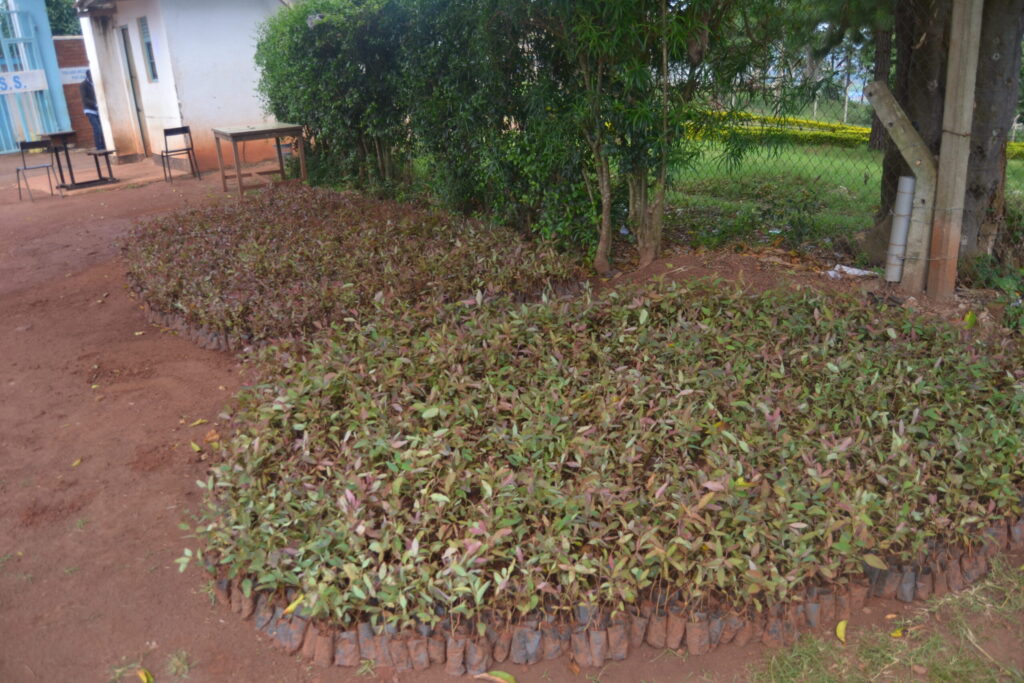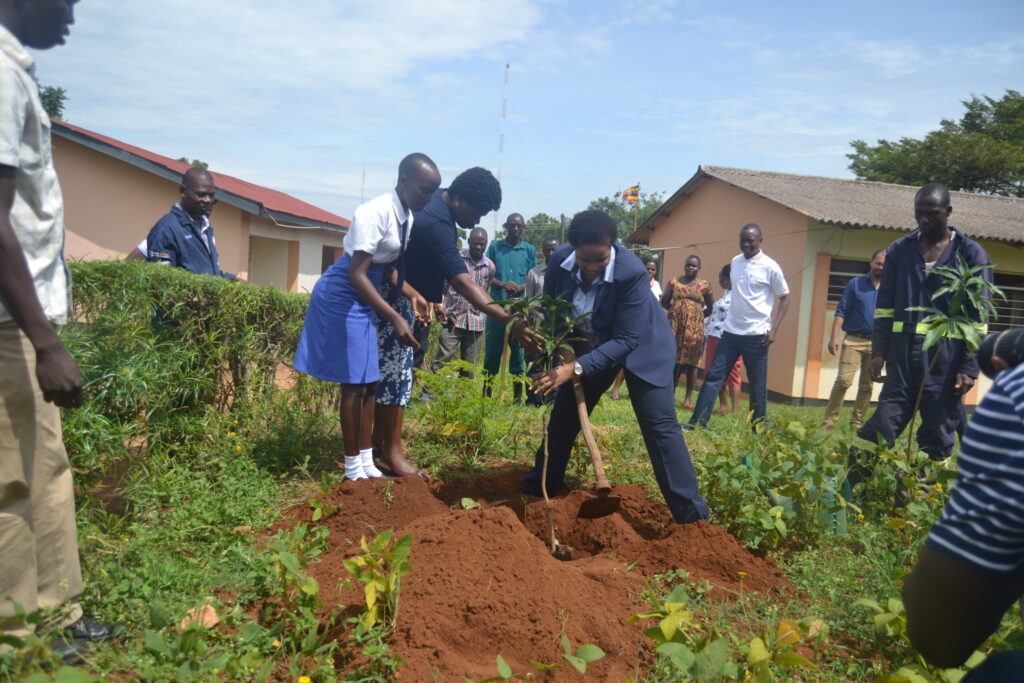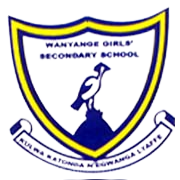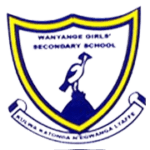STEM IN WANYANGE GIRLS SS
In 2019, We were introduced to the Mosquito project and given several academic sites where several students adapted from the Smithsonian Science Education Center.
This was guided by a faculty from Marymount University Modules
The girls were taken through the different parts of the mosquito larvae trap module that has seven parts ie mapping your identity and team formation, community mapping and research sites, life of mosquitoes, transmission of mosquito borne disease & their distribution, Mosquito Habitats, understanding local management, drawing action plans.
On 3rd/ 08/2019 we organized a STEM exhibition at Wanyange Girls S.S and invited the faculty from Marymount University and local community schools
WHY WANYANGE GOT INVOLVED AND STARTED
The Carnegie Africa Diaspora Fellowship having funded the specialist ie Prof. Usha Rajdev to come to Uganda and initiate the Mosquito larvae trap module further enabled us to be guided at every step of development of our project.
We also wanted to build collaboration with Marymount University through Prof. Usha Rajdev by getting the Global STEM certification through it hence applied for it.
In response to our mission, vision and core values that aim at improving institutional capacity to deliver efficient and quality problem solving Education among which is the avenue of science innovations/projects/fairs under STEM (Science, Technology, Engineering and Mathematics).
The mosquito larvae trap project created more awareness and insight on better means to have mosquitoes plus prevalence of malaria understood and controlled in our school community.
WHAT WE HAVE DONE AS A STEM PROJECT
Staff and students embraced the sent sites. With staff support students developed their projects which among others included the paracute egg drop project, the mosquito larvae trap project, mathematics project. Briquettes, liquid manure, mosquito insecticide from local plants, liquid soap, bio- decomposer etc.
From the introduced mosquito module in 2019, the students developed the aspect of identity map and team building, so they formulated teams which included the survey, sensitization, data collection and analysis. These worked within school and reached out to different categories of people.
One of our teachers attended the Smithsonian science centre, where we further got knowledge of handling post covid 19 interventions with different stake holders We had assignments on mosquito control and reduction in malaria prevalence posted on school website for students who were at home. In 2021, we had an opportunity from Busoga kingdom of our available girls to do peer to peer mentorship. Since we had some students and teachers residing in and around school premises we sought for clearance from the four neighbouring village leaders like Igenge village, Wanyange Girls village, Musima village, Katwe village and Nakanyonyi village, the girls addressed;
- self-identity map and team building which led to introduction of the mosquito module
- Mitigation of child abuse and neglect through resource recovery
- Survival skills

This was crowned by these children attending the birthday celebration for the Kyabazinga of Busoga (king)
In 2022, schools resumed and since we had all the classes;
the club girls and the teacher mentors met and constituted the executive body, identified the STEM criteria girls
Sensitized the Board of Governors and PTA members about the Wanyange Girls S.S Global STEM recognition process through Marymount
We have done a blog on the Wanyange Girls S.S website so as to keep uploading and sharing of quality information through the teacher in charge who will in turn work with the head teacher and Professor to ensure efficiency.


20th March 2020 marked closure of schools in Uganda due to the pandemic of Covid 19. During this first lock down, we still had opportunity of few classes attending school. This further gave chance to the girls to carry on with the teams’ activities. Like developing the mosquito trap and innovating other means of malaria control like growing mosquito repelling plants. Had some students attend an online webinar about GLOBE Mission Mosquito and from the attained shared they have now added an ingredient on Weather.
We have done a blog on the Wanyange Girls S.S website so as to keep uploading and sharing of quality information through the teacher in charge who will in turn work with the head teacher and Professor to ensure efficiency. Designed the Wanyange Girls S.S- Marymount STEM logo Emphasised Project- Based learning of STEM subjects using STEAM approach Doing supportive and rehabilitative mentorship programmes Doing community engagements and working with health centers Hosted Prof. Usha Rajdev from 18th-20th/03/2022 during her supportive trip to Uganda to ensure the attached schools prepare to meet the STEM certification criterion. Students showed case of their different projects. We appreciate her for this initiative. The Jinja Resident city Commissioner blessed the closing session. Had the initiation/ induction of the STEM criteria girls The girls continue to do peer mentorship through quizzes, debates, Music dance and drama, skits, plays as they address issues of community sensitization. After Prof. Usha’s interaction with the National Development Curriculum Centre directors, on the STEM- STEAM intervention in Uganda that also embraces project based learning which the new curriculum rolled out in 2021 spells out. The participating schools and Ndejje University were given an opportunity to show case our different projects which was done on the 23rd/03/2022. The different subject specialists after viewing the different projects that were developed from the mosquito larvae trap module gave feedback. As Wanyange Girls Secondary School, we appreciated the given positive feedback that encouraged us to keep innovating and developing our projects from learnt content.
- The lockdown due to the Covid 19 Pandemic affected our action plan because not all students could be accessed either through online or physical.
- The attached financial attribute limited actualization of some planned activities.
- Community interventions are expensive in a way of mobilization of and building of goodwill among different stake holders, security of the children to and from planned venues.
- Make use of openings availed by CADFP and Marymount University for our education benefit.
- Embracing the 21st century skills in implementing project Based Learning.
- Doing team building and team teaching during service delivery
- Being innovative teachers and open to critiques for perfect improvement
- Embracing research because it enables us to be constantly be informed and also reach out to others eg. The mosquito larvae trap project.
- Promote supportive peer to peer collaboration, mentorship and decision making.
- Taking on advocacy from an formed point of view
- Doing follow up on community interventions
- Sourcing for partners in identified projects
- We will seek support so as to enable effective actualisation of future projects.
- Looking into and ensuring all attributes for STEM Recognition through Marymount University are fully embraced.
- Mentoring other schools for Global STEM Recognition.
- Networking with other institutions.

